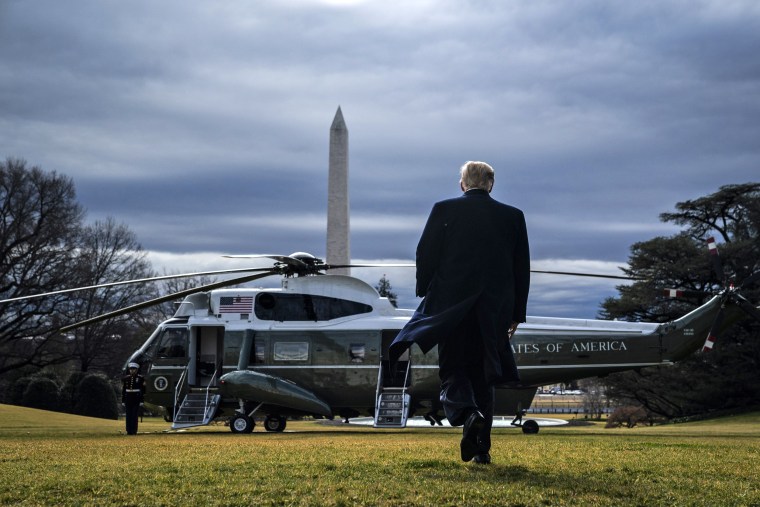Appearing on Fox News this morning, Donald Trump was asked, "Mr. President, what is your second term agenda? What are your top priorities?" It was the fourth time is six weeks the president was asked this question -- the most obvious and basic of any president seeking re-election -- and he still struggled to answer it.
"I want to take where we left, we had the greatest economy in the history of the world, we were better than any other country, we were better than we were ever -- we -- we never had anything like it in this country.... What I want to do is take it from that point and then build it even better."
He soon after transitioned to whining about Germany being "very delinquent" toward NATO.
At this point, we could note that Trump claims about the economy during his first three years are demonstrably ridiculous. We could also note that the president's ongoing confusion about how NATO works is tiresome.
But putting these relevant details aside, what's far more amazing is Trump's inability to think of anything he wants to do if he's rewarded with a second term.
Let's back up for a minute to revisit how we arrived at this point. It was in late June when Sean Hannity first asked about the president's "top priority items for a second term." Trump rambled for 161 words, insisted that the word "experience" is "a very important word," called John Bolton "an idiot," but never got around to identifying a single substantive goal.
Sen. Chuck Grassley (R-Iowa) soon after scolded Hannity, arguing that the Fox News host has a responsibility to help Trump win, and it's not helpful to to ask questions such as "What are your top priority items for a second term?"
Soon after, the president spoke with Sinclair Media's Eric Bolling, a former Fox News host, who said he wanted to offer Trump "a retake" on the same question. The president replied, "[I]t's very simple: we're going to make America great again. We are doing things that nobody could have done."
As we discussed, Trump proceeded to ramble through a 380-word answer that made clear that he didn't know how to answer the most obvious question of any campaign: what will you do if you win?
Attempt #3 came during a different Sean Hannity interview in July -- when the president must've known the question was coming -- as the host once again encouraged Trump to tell the public what he'd do with a second term. The answer was marginally more coherent, but ultimately hollow: Trump said he plans to work on the coronavirus, which is what he claims to already be doing. He intends to work on the economy, which is what he claims to already be doing. He wants to focus on unidentified trade deals, border-wall construction, and military spending, all of which is what he claims to already be doing.
The president added that he wants to care for veterans, protect the Second Amendment, and stack the courts with more far-right ideologues -- and if these priorities sound familiar, it's because, according to Trump, he's already doing each of these things, too.
In other words, the incumbent president's plan for a second term is to offer more of the same. That's it. That's the agenda. As of this morning, it's still the agenda.
Circling back to our earlier coverage, part of this is predictable. When Trump delivered a campaign re-launch speech in Tulsa in June, he neglected to say what he intended to do if rewarded with a second term.
What's more, the president's campaign website does not feature an issues page listing any plans or blueprints for the future. Even the Republican Party's 2020 platform is just the 2016 platform recycled.
And it's becoming increasingly clear why that wasn't an especially tough call for Team Trump.
As we recently discussed, at this point in the campaign, we'd ideally see a battle of ideas, with the major-party candidates critiquing each other's agendas, highlighting their flaws, and promising a better way. Except in 2020, that's effectively impossible: the Republican incumbent hasn't presented any ideas to critique.
It's not an accident; it's the result of a choice. Governing parties present platforms to voters, in part so the electorate knows what they consider important, and in part so that winning candidates can claim a mandate in the event of a victory.
Post-policy parties, however, don't bother.
